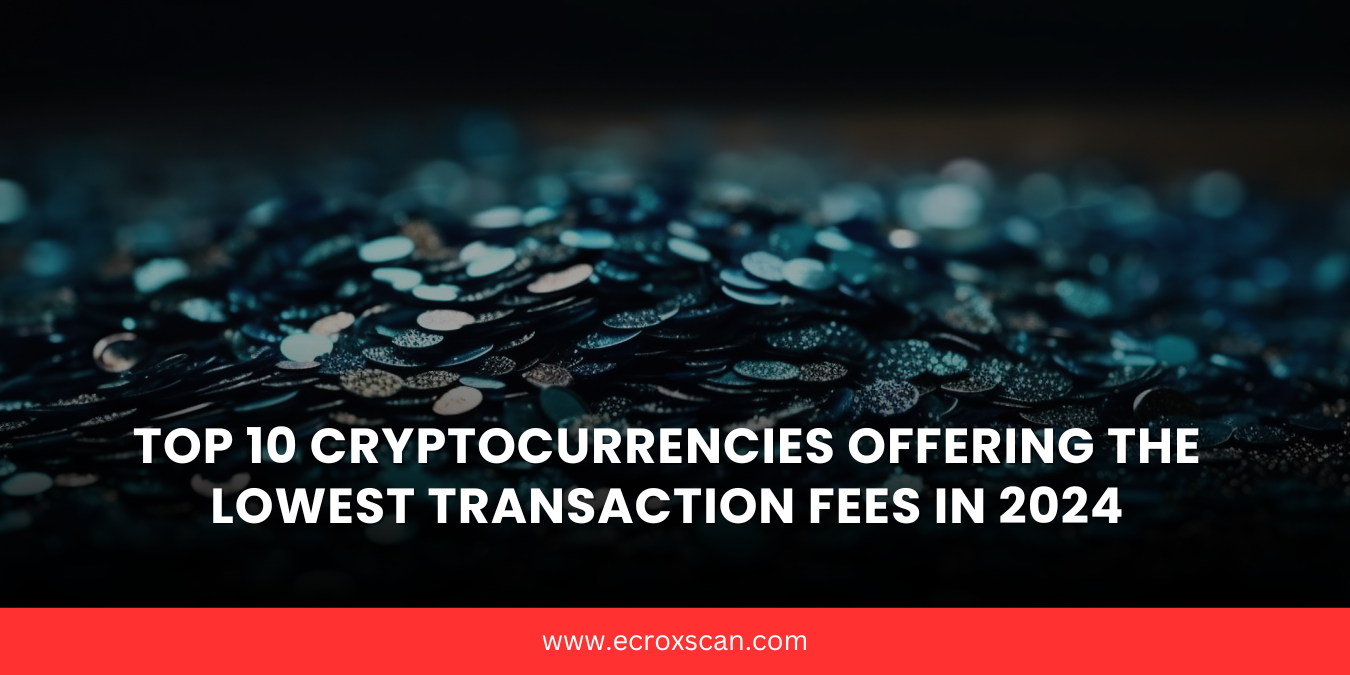Lowest Transaction Fees, the landscape of cryptocurrencies continues to evolve, with transaction fees playing a crucial role in user adoption and economic feasibility. Understanding the lowest transaction fees in 2024 is pivotal for both investors and users alike. As of 2024, several cryptocurrencies stand out for their competitive fee structures and technological innovations.
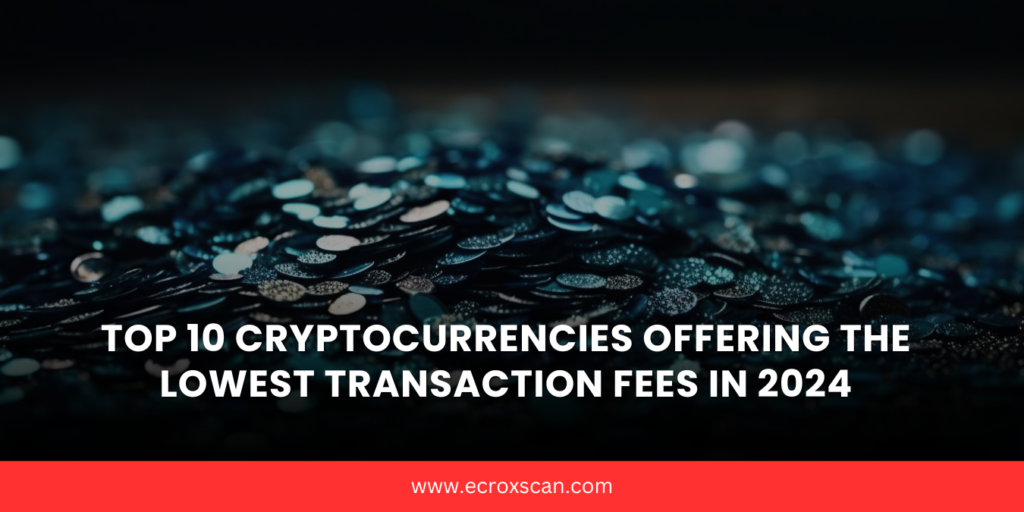
1. Nano (NANO)
Nano has consistently been one of the leading cryptocurrencies Designed for efficient, feeless transactions, the Lowest Transaction Fees in 2024 ,Nano uses a unique block-lattice structure that allows each account to have its blockchain. This innovation reduces the need for miners and their associated fees, making Nano a prime candidate for everyday transactions.
2. “Ecrox Chain: Leading with the Lowest Gas Fees”
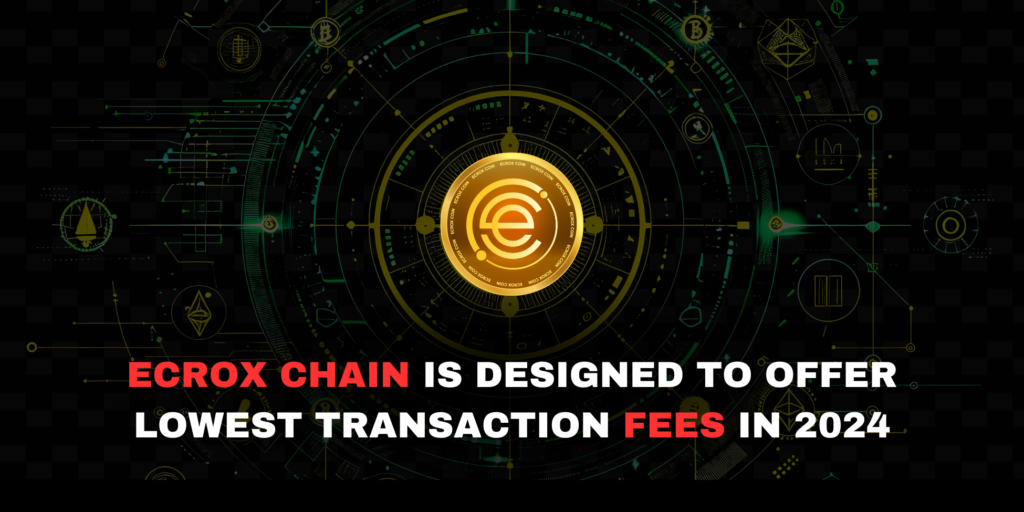
In the blockchain world, Ecrox Chain stands out by offering the lowest gas fees. Gas fees, necessary for blockchain transactions, can be costly and limit accessibility. Ecrox Chain tackles this by reducing these costs, making transactions affordable.
Ecrox Chain’s efficient consensus mechanism and advanced technology minimize gas fees without compromising speed or security. This allows users to perform transactions quickly and securely at much lower costs than other platforms. Whether you’re a developer, a business, or an individual, Ecrox Chain’s low fees provide substantial savings and efficiency.
3. IOTA has one of the lowest crypto transaction fees.
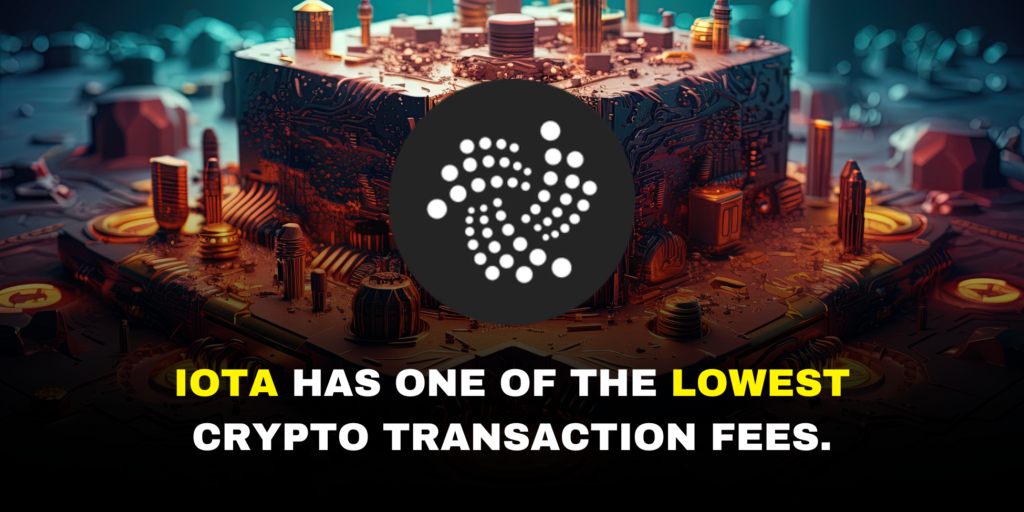
IOTA is designed for the Internet of Things (IoT), focusing on enabling secure sales and trading data streams. Its Tangle technology, a form of Directed Acyclic Graph (DAG), ensures Lowest Transaction Fees and high scalability. By removing traditional blockchain miners, IOTA eliminates the need for transaction fees, making it perfect for microtransactions and data exchanges in IoT ecosystems.
3. Stellar (XLM)
Stellar aims to facilitate cross-border payments and microtransactions with low fees. The network’s transaction costs are negligible, averaging around 0.00001 XLM per transaction. Stellar’s consensus algorithm, which differs from traditional proof-of-work, ensures fast and cost-efficient transactions. This has positioned Stellar as a leading option for remittances and international payments.
4. TRON (TRX)
Lowest Transaction Fees : TRON’s primary focus is on decentralizing the web, particularly in the entertainment industry. The network boasts very low transaction fees, averaging around $0.00001 per transaction. TRON’s Delegated Proof of Stake (DPoS) consensus mechanism significantly reduces transaction costs while maintaining high throughput and scalability, making it suitable for content sharing and social media applications.
4. Solana – Leading the Blockchain Revolution with $0.00025 Transaction Fees
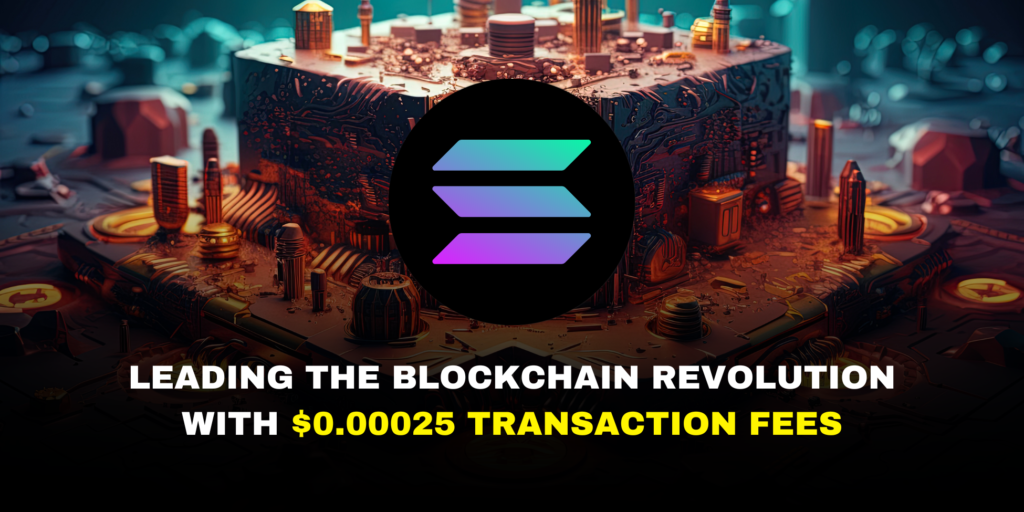
Solana is a high-performance blockchain platform designed for decentralized applications and cryptocurrencies. It is known for its scalability, fast transaction speeds, and low costs. One of its standout features is its extremely low transaction fees, which average around $0.00025 per transaction. This makes Solana an attractive option for developers and users looking for efficient and cost-effective blockchain solutions. Additionally, Solana has gained significant attention and adoption, placing it among the top 10 cryptocurrencies by market capitalization.
6. Bitcoin Cash (BCH)
Bitcoin Cash offers lowest transaction fees, Bitcoin Cash was created to address Bitcoin’s scalability issues, offering larger block sizes and faster transaction times. While not completely feeless, Bitcoin Cash transaction fees are significantly lower than those of Bitcoin, averaging around $0.002 per transaction. Its low transaction fees and faster processing times make it a preferred choice for peer-to-peer payments and merchant transactions.
7. Litecoin (LTC)
Litecoin, often referred to as the silver to Bitcoin’s gold, offers faster transaction times and lower fees compared to Bitcoin. The average transaction fee on the Litecoin network is around $0.01, making it a cost-effective option for everyday transactions. Litecoin’s scalability and low fees have cemented its place as a reliable cryptocurrency for payments and transfers.
8. Dash (DASH)
Dash is known for its focus on fast and low-cost transactions. The Instant Send feature allows for nearly instant transactions with minimal fees, averaging around $0.01. Dash’s unique two-tier network, comprising miners and master nodes, ensures transaction speed and efficiency. This makes Dash an excellent choice for both everyday transactions and larger payments.
9. Ripple (XRP)
Ripple is designed primarily for banks and payment providers to facilitate cross-border payments. The average transaction fee on the Ripple network is around $0.0002, making it one of the cheapest options for international transactions. Ripple’s consensus algorithm, which doesn’t require mining, significantly reduces transaction costs and ensures fast processing times.
Which crypto coin has the lowest transaction fees?
Nano (NANO) is often noted for having extremely low transaction fees, typically boasting feeless transactions due to its unique block-lattice architecture. This makes it one of the cryptocurrencies with the lowest transaction costs in the industry
What is the cheapest blockchain?
The cheapest blockchain typically refers to blockchains with low transaction fees or costs associated with using them.

